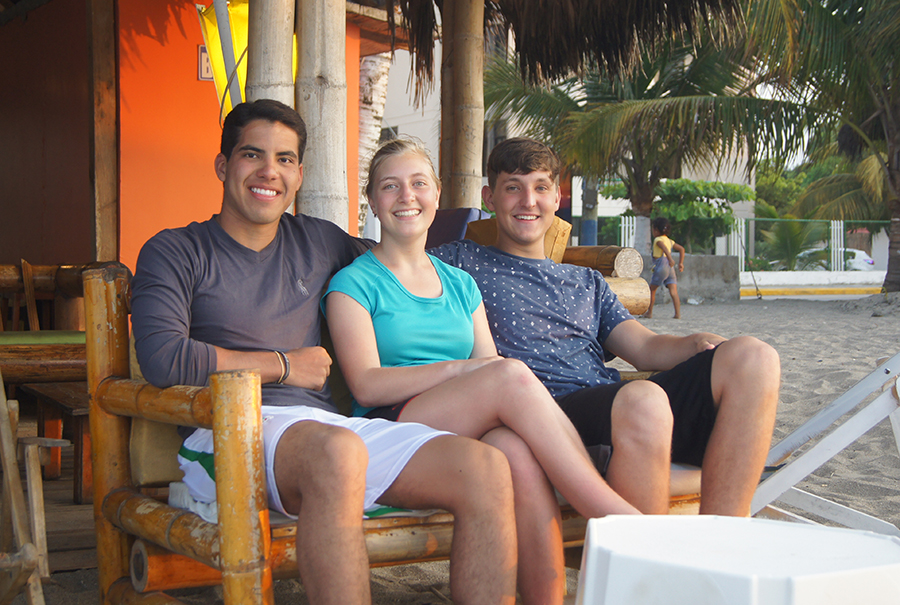Three Goshen College students, first-years Josh Schirch and Petra Showalter, and sophomore Seth Kurtz, spent the last ten months in Ecuador serving with Mennonite Mission Network. While all three of these students were ready for a gap year, they each had different perspectives going into the term.
high school, Schirch wanted to take a year off where he could do something other than schoolwork. After one year already completed at Goshen College, Kurtz was ready to explore the world beyond Goshen. Showalter had siblings who had all previously taken a gap year and she saw firsthand the benefits that came out of their service years.One of their main focuses in Ecuador was serving with the Quito Mennonite Church. They provided basic needs for the community to assist them in their daily lives. Services included packaging food, organizing a clothes closet, and providing money for transportation. They connected personally with refugees by interviewing, visiting, and providing services for them. They were also able to interact and form rewarding relationships with the community through social events the church organized.
Schirch also spent six weeks working at an eco-lodge in the Amazon region of the country. He worked with a program where the focus was on teaching the skills required by the eco-lodge profession to indigenous children. He also helped teach English to community members ranging from 14 to 50 years old.
Along with these multiple jobs, he also helped to harvest crops and give tours. For Schirch, one major difference about these six weeks was the contrast between the city and the Amazon. Noting the difference between the two locations, he said, “everything was cement [in the city] and there was not a lot of color [such as plants and vegetation].”
One of the challenges that both Kurtz and Showalter faced was the cultural and language barrier. While both had studied Spanish, it was a difficult transition from the classroom to the real world. During their time in Ecuador, both students were able to apply and expand their Spanish speaking skills. Another thing they had to get used to was a different style of living.
Kurtz comments on how they had to be flexible with their living arrangements. They were all used to a certain style and level of comfortableness, but transitioning to Ecuador, they had to share bathrooms and adjust to smaller living arrangements.
By the end of their ten months, all three students expressed they felt they had changed. They had newfound confidence in themselves and in their character. Kurtz expressed how he felt he had grown both in maturity as well as in his faith.
During his time in Ecuador he was able to meet new people and develop strong relationships with them. He felt it was rewarding to live in a new culture and also learn Spanish.
All three students agree that taking a gap year for service is a good way to take a break from academics. They note that it allows you to take a pause from school but continue to serve and grow in your faith in a less privileged part of the world. You also allow yourself to be immersed in a new culture and you can learn to be open-minded about new situations that you are placed in.
Taking a gap year to do service allows for personal growth, new relationships, and new experiences that will help later in life. These three students reaped the rewards of taking the time to serve in Ecuador.
One thing that Showalter took away from this experience were the relationships she had formed both with the people she worked with as well as with the community she was serving.
She said, “The hardest thing at the end of the trip was leaving behind the people that you had gotten to know and not knowing when you were going to see them again.”



